Introduction
Integrative healthcare refers to a holistic approach to healthcare that involves collaboration among various healthcare professionals and specialists to provide comprehensive treatment to patients. The goal is to improve the overall quality of care for the patient by combining resources and types of medicine.
Integrative healthcare differs from alternative medicine, which involves using non-mainstream practices instead of conventional medicine. Nor is it the same as complementary medicine, which refers to using non-mainstream practices along with conventional medicine. Integrative healthcare is a broader concept that encompasses both complementary and alternative medicine, as well as conventional medicine, in a coordinated and evidence-based way.
Choosing a qualified provider is important for integrative healthcare, as not all practitioners have the same level of training, expertise, and credentials. You should look for a provider who has a license and certification in their field, who has experience and knowledge in integrative healthcare, and who respects your preferences and values. You should also communicate with your provider about your health goals, expectations, and concerns, and ask questions about the benefits, risks, and costs of any treatment or therapy.
Integrative healthcare is based on a holistic approach, which means that it considers the whole person, not just the disease or symptom. A holistic approach takes into account the physical, mental, emotional, social, and spiritual aspects of health and well-being, and how they interact and influence each other. A holistic approach also recognizes the uniqueness and diversity of each individual and tailors the treatment and care to their specific needs and circumstances.
Understanding Integrative Healthcare
Integrative healthcare is a model of healthcare that aims to provide the best possible outcomes for patients by using a variety of approaches and methods. Integrative healthcare is based on the following principles:
- Patient-centered: The patient is the primary focus of the care, and their preferences, values, and goals are respected and supported.
- Team-based: The care is delivered by a team of professionals from different disciplines and backgrounds, who work together and communicate effectively.
- Evidence-informed: The care is based on the best available scientific evidence, as well as the clinical expertise and experience of the providers, and the patient’s preferences and values.
- Prevention-oriented: The care emphasizes the prevention of disease and the promotion of health and wellness, rather than the treatment of disease alone.
- Quality-driven: The care strives to achieve the highest standards of quality, safety, and effectiveness, and to continuously monitor and improve the outcomes and satisfaction of the patients.
Integrative healthcare can involve a combination of conventional and alternative therapies, depending on the needs and goals of the patient. Conventional medicine refers to the medical practices that are widely accepted and used by most healthcare professionals, such as surgery, medication, radiation, or chemotherapy. Alternative therapies refer to medical practices that are not typically part of conventional medicine, such as acupuncture, massage, yoga, meditation, or herbal remedies.
The combination of conventional and alternative therapies can offer several benefits for the patient, such as:
- Enhancing the effectiveness and reducing the side effects of conventional treatments
- Providing additional options and choices for the patient
- Addressing the underlying causes and factors of the disease or symptom
- Supporting the self-healing and self-regulating abilities of the body
- Improving the quality of life and well-being of the patient
Integrative healthcare also focuses on treating the whole person, rather than the disease or symptom alone. Treating the whole person means that the care considers and addresses all the aspects of the patient’s health and well-being, such as their physical, mental, emotional, social, and spiritual needs. Treating the whole person also means that the care respects and honors the patient’s individuality, diversity, and uniqueness and that the care is personalized and customized to their specific situation and circumstances.
Qualifications and Credentials
Choosing a qualified provider is essential for integrative healthcare, as not all practitioners have the same level of training, expertise, and credentials. You should look for a provider who has a license and certification in their field, who has experience and knowledge in integrative healthcare, and who respects your preferences and values. You should also communicate with your provider about your health goals, expectations, and concerns, and ask questions about the benefits, risks, and costs of any treatment or therapy.
- Importance of verifying the provider’s credentials: Verifying the provider’s credentials can help you ensure that they have the necessary education, training, and skills to deliver safe and effective care. It can also help you avoid fraud, malpractice, or harm from unqualified or unlicensed practitioners. You can verify the provider’s credentials by checking their website, contacting their office, or consulting online databases or directories of professional organizations.
- Recognition of relevant licenses and certifications: Licenses and certifications are different types of credentials that indicate the provider’s competence and authority to practice in their field. Licenses are granted by state governments and require the provider to meet certain standards of education, training, and examination. Certifications are granted by professional organizations and require the provider to demonstrate their knowledge and skills in a specific area or specialty. Some examples of relevant licenses and certifications for integrative healthcare providers are medical doctor (MD), doctor of osteopathic medicine (DO), naturopathic doctor (ND), chiropractic doctor (DC), acupuncturist (LAc), massage therapist (LMT), nutritionist (RD), or yoga instructor (RYT).
- Exploration of additional training or specialization in integrative medicine: In addition to their basic credentials, some providers may have additional training or specialization in integrative medicine. This can indicate their interest and expertise in combining conventional and complementary therapies, as well as their commitment to continuing education and professional development. You can ask the provider about their background and experience in integrative medicine, such as the courses, workshops, or fellowships they have completed, the organizations they belong to, or the publications they have authored or contributed to.
Communication and Patient-Centered Care
Communication and patient-centered care are key aspects of integrative healthcare, as they involve building a trusting and respectful relationship between the provider and the patient, and ensuring that the care Is customized to the individual’s requirements and objectives. Effective communication and patient-centered care can improve the quality and outcomes of care, as well as the satisfaction and empowerment of the patient.
- Emphasis on effective communication between provider and patient: Effective communication is the exchange of clear, accurate, and relevant information between the provider and the patient, as well as the expression of empathy, compassion, and support. Effective communication can help the provider understand the patient’s perspective, preferences, and values, and the patient understand the provider’s recommendations, rationale, and expectations. Effective communication can also help the provider and the patient establish rapport, trust, and collaboration, and resolve any conflicts or misunderstandings.
- Consideration of the provider’s commitment to patient-centered care: Patient-centered care is the provision of care that respects and responds to the patient’s individual needs, preferences, and values, and that involves the patient in all aspects of the care process. Patient-centered care can help the patient feel valued, respected, and heard, and the provider feels appreciated, motivated, and fulfilled. Patient-centered care can also help the patient achieve better health and well-being, and the provider delivers better care and service.
- Recognition of the importance of shared decision-making in integrative healthcare: Shared decision-making is the process of making informed and mutually agreed-upon decisions about the patient’s care, based on the best available evidence, the provider’s expertise, and the patient’s preferences and values. Shared decision-making can help the patient and the provider explore the benefits and risks of different options, weigh the pros and cons, and choose the most suitable course of action. Shared decision-making can also help the patient and the provider share responsibility, accountability, and ownership of the care, and enhance their trust and satisfaction.
Range of Therapies Offered
Integrative healthcare can offer a wide range of therapies and treatments, depending on the patient’s condition, goals, and preferences. Integrative healthcare can combine conventional and complementary therapies, as well as evidence-based and holistic modalities, to provide the most comprehensive and effective care. Integrative healthcare can also adapt and customize the therapies and treatments to the patient’s individual needs and circumstances.
- Overview of the various therapies and treatments available: Integrative healthcare can include therapies and treatments from different disciplines and traditions, such as medicine, psychology, nursing, chiropractic, acupuncture, massage, nutrition, yoga, meditation, and more. Some examples of the therapies and treatments that integrative healthcare can offer are medication, surgery, radiation, or chemotherapy for conventional medicine; acupuncture, herbal remedies, homeopathy, or naturopathy for complementary medicine; cognitive-behavioral therapy, mindfulness, or hypnosis for psychological therapy; spinal manipulation, massage, or physical therapy for manual therapy; dietary counseling, supplements, or probiotics for nutritional therapy; yoga, tai chi, or qigong for movement therapy; meditation, breathing exercises, or biofeedback for relaxation therapy; and aromatherapy, music therapy, or art therapy for expressive therapy.
- Exploration of evidence-based and complementary modalities: Evidence-based modalities are those that have been tested and proven to be effective and safe by scientific research, such as randomized controlled trials, systematic reviews, or meta-analyses. Complementary modalities are those that have not been fully tested or proven by scientific research, but that have been used and accepted by different cultures or traditions for a long time, such as ancient or indigenous practices. Integrative healthcare can use both evidence-based and complementary modalities, as long as they are appropriate, compatible, and beneficial for the patient’s condition and goals. Integrative healthcare can also use both quantitative and qualitative methods to evaluate the outcomes and effects of the therapies and treatments.
- Consideration of the provider’s flexibility in tailoring treatments to individual needs: Integrative healthcare can tailor the therapies and treatments to the patient’s individual needs and circumstances, such as their medical history, physical condition, psychological state, social situation, spiritual beliefs, and personal preferences. Integrative healthcare can also adjust the therapies and treatments as the patient’s needs and circumstances change over time, such as their symptoms, progress, feedback, or expectations. Integrative healthcare can also involve the patient in the planning, implementation, and evaluation of the therapies and treatments, and respect their autonomy and choices.
Collaborative Approach and Referrals
Integrative healthcare is based on a team-based approach, where different healthcare providers work together and communicate effectively to provide the best possible care for the patient. Collaborative approach and referrals are important aspects of integrative healthcare, as they involve coordinating and sharing the resources and expertise of different providers, as well as ensuring the continuity and quality of care.
- Recognition of the importance of collaboration among healthcare providers: Collaboration among healthcare providers can enhance the care process and outcomes by offering a variety of perspectives, skills, and knowledge, as well as reducing duplication, fragmentation, and gaps in care. Collaboration can also improve the efficiency, effectiveness, and satisfaction of the providers, as well as the patient, by reducing the workload, costs, and errors, and by increasing support, learning, and innovation.
- Exploration of the provider’s willingness to work with other specialists: Working with other specialists can offer additional options and choices for the patient, as well as address the complex and multifaceted aspects of their health and well-being. Working with other specialists can also complement and supplement the provider’s own practice, by offering new and relevant information, insights, and feedback. The provider’s willingness to work with other specialists can be assessed by asking about their experience, attitude, and network in integrative healthcare, as well as their referral patterns and practices.
- Consideration of the ability to provide or refer to a network of healthcare professionals: Providing or referring to a network of healthcare professionals can ensure that the patient receives the most appropriate and comprehensive care, as well as the access and availability of different services and resources. Providing or referring to a network of healthcare professionals can also facilitate coordination and communication among the providers, as well as the patient, by establishing clear roles, responsibilities, and expectations. The provider’s ability to provide or refer to a network of healthcare professionals can be evaluated by asking about their affiliations, collaborations, and partnerships with other providers, organizations, or institutions.
Personal Fit and Compatibility
Integrative healthcare is based on a patient-centered approach, where the patient is the primary focus of the care, and their preferences, values, and goals are respected and supported. Personal fit and compatibility are key aspects of integrative healthcare, as they involve building a trusting and respectful relationship between the provider and the patient, and ensuring that the care is tailored to the patient’s needs and goals.
- Importance of assessing personal comfort and trust with the provider: Personal comfort and trust with the provider can influence the quality and outcomes of the care, as well as the satisfaction and empowerment of the patient. Personal comfort and trust with the provider can help the patient feel valued, respected, and heard, and the provider feels appreciated, motivated, and fulfilled. Personal comfort and trust with the provider can also help the patient and the provider establish rapport, collaboration, and shared decision-making.
- Consideration of the provider’s philosophy and approach to healthcare: The provider’s philosophy and approach to healthcare can reflect their beliefs, values, and principles, as well as their methods, techniques, and practices. The provider’s philosophy and approach to healthcare can affect the compatibility and alignment with the patient’s expectations, preferences, and values, as well as the suitability and effectiveness of the care. The provider’s philosophy and approach to healthcare can be explored by asking about their background, training, and experience in integrative healthcare, as well as their vision, mission, and goals.
- Recognition of the importance of a positive therapeutic relationship: A positive therapeutic relationship is the bond and connection that develops between the provider and the patient, based on mutual trust, respect, and understanding. A positive therapeutic relationship can enhance the care process and outcomes by facilitating the communication, cooperation, and participation of the patient and the provider, as well as by fostering a sense of empathy, compassion, and support. A positive therapeutic relationship can also improve the well-being and resilience of the patient and the provider, by providing a source of healing, inspiration, and fulfillment.
Insurance Coverage and Financial Considerations
Integrative healthcare can offer a variety of benefits and outcomes for your health and well-being, but it can also involve some costs and expenses that you need to be aware of and plan for. Insurance coverage and financial considerations are important aspects of integrative healthcare, as they affect the accessibility and affordability of the services and resources that you may need or want. You should explore your insurance coverage, consider your out-of-pocket costs and payment options, and discuss your financial considerations with your provider before you start or continue your integrative healthcare journey.
- Exploration of insurance coverage for integrative healthcare services: Insurance coverage for integrative healthcare services can vary depending on your insurance plan, provider, and location. Some insurance plans may cover some or all of the costs of certain integrative healthcare services, such as acupuncture, chiropractic, or massage therapy, while others may not cover any or only a portion of the costs. Some insurance plans may require you to get a referral, authorization, or prescription from your primary care provider or specialist before you can access or claim integrative healthcare services. Some insurance plans may also have limits or restrictions on the number, frequency, or duration of the integrative healthcare services that they will cover. You should check your insurance plan details, contact your insurance company, or consult your insurance agent to find out what integrative healthcare services are covered, how much they will pay, and what conditions or requirements you need to meet to get the coverage.
- Consideration of out-of-pocket costs and payment options: Out-of-pocket costs are the expenses that you have to pay yourself for the integrative healthcare services that are not covered or fully covered by your insurance plan. Out-of-pocket costs can include deductibles, copayments, coinsurance, and fees for the services or products that you use or purchase. Out-of-pocket costs can vary depending on the type, quality, and quantity of the integrative healthcare services that you receive, as well as the provider, location, and market rates. Out-of-pocket costs can also add up over time, especially if you use multiple or frequent integrative healthcare services. You should ask your provider about the costs and fees of the integrative healthcare services that they offer, and compare them with other providers or options. You should also ask your provider about the payment options and plans that they accept, and whether they offer any discounts, scholarships, or financial assistance for their integrative healthcare services.
- Importance of understanding and discussing financial considerations with the provider: Understanding and discussing your financial considerations with your provider can help you make informed and realistic decisions about your integrative healthcare plan and goals. It can also help you avoid or minimize any financial stress, burden, or hardship that may affect your health and well-being. You should communicate with your provider about your budget, expectations, and concerns, and ask questions about the benefits, risks, and costs of any treatment or therapy that they recommend or suggest. You should also work with your provider to find the most suitable and affordable integrative healthcare services that meet your needs and preferences, and that align with your values and priorities.
Conclusion
Integrative healthcare involves collaboration among various medical professionals and specialists to provide comprehensive treatment for patients. The goal is to improve the overall quality of care for the patient by combining resources and types of medicine.
Choosing an integrative healthcare provider can be a challenging and complex process, but it can also be a rewarding and beneficial one. There are many factors and considerations that you need to take into account when selecting an integrative healthcare provider, such as their qualifications and credentials, communication and patient-centered care, range of therapies offered, collaborative approach and referrals, personal fit and compatibility, and insurance coverage and financial considerations. You should research, ask questions, advocate for your healthcare needs and goals, and find a provider who respects and supports your choices and values.
Integrative healthcare is an evolving and expanding field, that has the potential to offer many advantages and opportunities for your health and well-being. Integrative healthcare can provide you with a variety of options and choices, as well as a holistic and personalized approach, to address your physical, mental, emotional, social, and spiritual needs. Integrative healthcare can also help you achieve better outcomes and satisfaction, as well as prevent or manage chronic conditions and diseases.
Integrative healthcare is a way of healing that can help you and your provider work together as a team, and that can help you take charge of your own health and well-being. Integrative healthcare is not only a way of healing, but also a way of living, that can help you improve your quality of life and well-being.
FAQ
What is the integrative approach to health and wellbeing?
The integrative approach to health and wellbeing is a holistic and comprehensive approach that considers the whole person, including their physical, mental, emotional, social, and spiritual aspects, and how they interact and influence each other. The integrative approach also uses a variety of evidence-based and complementary therapies and practices, such as conventional medicine, alternative medicine, nutrition, exercise, and mind-body techniques, to promote health and prevent or treat illness.
What is the integrated approach to health and wellness?
The integrated approach to health and wellness is a similar concept to the integrative approach, but it may also emphasize the coordination and collaboration among different healthcare providers and specialists, as well as the patient, to provide the best possible care. The integrated approach also aims to address the behavioral, social, and environmental factors that affect health and well-being, such as stress, lifestyle, and community.
How can integrative medicine help?
Integrative medicine can help by providing a personalized and holistic care plan that meets the patient’s individual needs, preferences, and goals. Integrative medicine can also help by combining the benefits and resources of conventional and complementary therapies, as well as addressing the underlying causes and factors of health issues, rather than just the symptoms. Integrative medicine can also help by improving the quality of life and well-being of the patient, as well as preventing or managing chronic conditions and diseases.
What is the meaning of integrative medicine in healthcare?
The meaning of integrative medicine in healthcare is an approach that combines conventional medicine with complementary therapies in a coordinated and evidence-based way. Integrative medicine is based on the principles of patient-centered, team-based, evidence-informed, prevention-oriented, and quality-driven care. Integrative medicine also respects and responds to the patient’s individuality, diversity, and uniqueness, and involves the patient in all aspects of the care process.
Important Notice:
The information provided on “health life ai” is intended for informational purposes only. While we have made efforts to ensure the accuracy and authenticity of the information presented, we cannot guarantee its absolute correctness or completeness. Before applying any of the strategies or tips, please consult a professional medical adviser.















